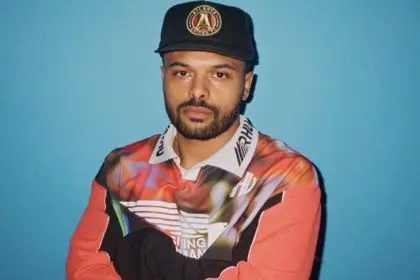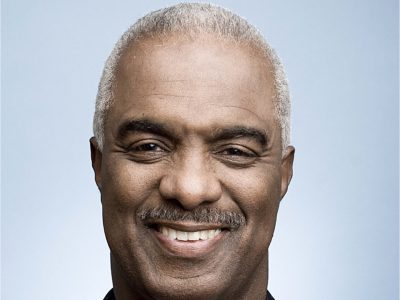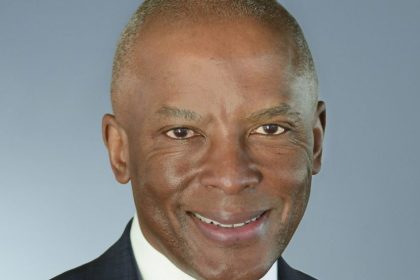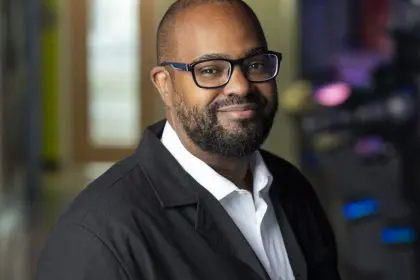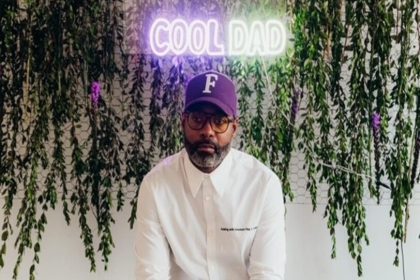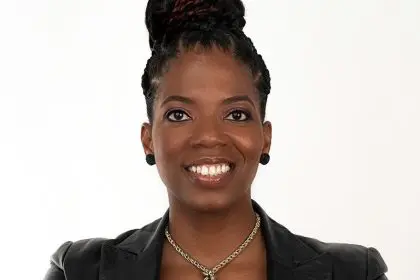
In the world of leadership development and corporate diversity, few organizations have made as profound an impact as INROADS. For 55 years, this institution has transformed the lives of deserving young talent by providing them with the skills, confidence and opportunities needed to thrive in corporate America.
At its helm stands Forest Harper, president and CEO of what has become the world’s leading nonprofit organization for diverse talent solutions in corporate America. Under Harper’s guidance, INROADS has expanded its partnerships to include 250 Fortune 500 companies, increased its partnership network by 40 percent and grown its alumni base to more than 30,000 members worldwide.
This remarkable growth reflects Harper’s commitment to continuing the legacy of founder Father Frank Carr while building new bridges between untapped talent and corporate opportunity. The organization’s national board, composed of several members from Fortune 100 companies, stands as testament to INROADS’ influence in shaping the future of corporate diversity.
When I think of INROADS and the impact you have on the entire ecosystem and the vision you have for tomorrow, can you describe what that is?
First of all, let me give credit to the founder, Frank Carr, who became Father Frank Carr. He had a fundamental belief that there were deserving untapped talents in our communities, that were not getting the proper training and development to not only achieve and strive to those things that we give them this sort of the basics, elements from communication skills to dressing skills, to also thinking skills. But to put them to work in a very practical way, through internships and experiences and exposure.
But the one part of the ingredient that he never told anybody about was how he added resiliency in that. So, when you see someone who’s come through INROADS, you not only see a very impactful, the essence of what we call professionalism, but also appreciation for their fellow person. You also see someone who’s built to last, and with their resilient ways of surviving even through times that we see today.
What would be the top three insights that a parent, a counselor, a church member, needs to know when they recommend a young person for INROADS?
Number one is, whatever their dream is, we want to help them get it into action. That’s number one. We don’t take away from their dreams. Number two is really about their confidence in their capabilities. If you think you are a superstar in singing, a superstar in engineering, we want to make sure that we really harness that capability into economic prosperity and into a lifestyle later in life. And then the third really is about communication skills.
We have so many talented, deserving young people that just don’t know how to communicate well. You’re an awesome communicator. You know skills, the best expertise, but if you can’t communicate, it’s not good. So those are the three.
What’s it like once they get inside those halls through INROADS?
It’s a great question. It starts before they get there. We actually give them a mock situation. When they walk in that building or when they’re on that Zoom call, they are first representing themselves, their family, their mentors and INROADS. So, when they walk in that building, and they’re in that conference room with people who are more than fifty, twenty, thirty, ten years old, they’re representing all of those elements, and their goal is to stand up and impact. We really focus on ensuring that they have something to contribute and it’s valuable. So, be confident in what you’re producing.
I remember my first impression of how that works and what we take away here at INROADS is Dean Mobley, who is the Godwoman of business at FAMU’s school of business and industry. She was a superstar. She set the standard. She raised the bar all the way to when I went to my HBCU, Morgan State University. We had those folks like Earl Graves, who stepped into a room, and commanded attention right away. So, we give them mock sessions to make sure that they’re ready when they do get in those rooms, in those settings.
What’s it like to know that the impact you’re having is transforming how corporate America views our community based on the class, style, intelligence, and capacity that came from INROADS?
I’ll use a quote that comes from Thasunda Duckett, who is the CEO of TIAA. She says INROADS was a disruptor in her life, meaning, it disrupted the path that she was on to put her on the path to get her there. She never denies, and neither does Chris Womack coming from Alabama going in the Central West to get to go to college and come back. Now he’s the CEO of one of the largest energy companies in America. And then Mr. Roberts at MetLife and others.
They all give credit to their early beginnings of mentorship, those people who stood around them and coming through INROADS. And so, when that happens, it gives an instant state of credibility, and the way you think about it, even at any level you could be at to give you connectivity.
Think about it this way. When an NFL player makes the Hall of Fame, and he’s got his gold jacket on, they’re up there in Ohio, and they’re getting ready to talk about who they’re going to give credit to 9 times out of 10, they’re going to say Ms. Johnson or Mrs. Johnson my second grade or 3rd grade teacher is why I’m here. And then all of a sudden, you started to give them cheers.
Well, we’re that second grade teacher that we get credit to, and we appreciate. These folks have come through INROADS. So without an INROADS, where would Thasunda be? Where would Michael be? Where would Sterling K. Brown be? Where would Aloe Blacc be? Where would Mrs. Higginbotham, one of the astronauts, where would they all be? We’d be successful. We are just proud to be a part of their path.
What has it been like for you to know that the calling you’ve had has given life, legacy and longevity for our community to have Black professionals in the E-suite?
Let me start by saying that when you talk to Chris Womack, he’ll tell you right up front. There were people in his life along the way that helped shape him. And I think about that every single day. I get the actual privilege of leadership and in the privilege of leadership. It’s about someone putting clay in your hands, and you’re helping shape it. And all of a sudden they’ll be finished with that, and you sit it up and go, “Wow! Look at what I helped shape.” And so to that end my passion is driven from helping shaping lives of the future.
I may start here when they’re fifteen. I may never see them again until they’re forty. But guess what? I was a part of the shaping of that clay early on and throughout their lives. That in itself gives me a sense of pride because they allow me to help shape their lives in the way that we’re going to end up in the future.
And so, when I see those who’ve gone to the E-suites and the C-suites, and someone said to me, “Hey, Forest. Boy, I remember when you said or remember when you did or remember when you returned my phone call, or remember when you returned my email to my note, or when you send me that note on my graduation.” That is what shapes my passion for what I do, because I get greater appreciation out of that than just about anything else, is helping shape the lives of the future people.
If you were speaking to all CEOs who had an opportunity to open their doors to INROADS, what would you say to them?
The first thing I’d say is common to every successful leader in corporate America. People are your greatest asset, talented people from all inclusive sources, is your next powerful asset. We have a 55 year success rate, year after year after year, of getting young, deserving, talented students on a career path that ends up in your leadership team. A company like JP Morgan Chase. We have over 18 Vice Presidents currently in that company.
That’s proof of building a career pathway. Don’t be afraid to take a risk outside of your norm to look at talent that you don’t normally look for in places you don’t normally look. We want to be the new norm of the places you look for talent to be able to build your workforce and be a highly competitive workforce to thrive for years to come.
So, I invite CEOs in the Fortune 100 company, call us. Get on the phones. We’ll meet with you. We’ll share with you how we’re able to build and scale the workforces of the future come to the ordinary places that you may not come to every day, and you’re gonna find extraordinary talent that you’ve never seen before, and you’ll be pleased with it.
Can you share some insight on this annual fundraiser that more corporations should get behind?
First of all, they can go to our website inroad.org, and they can click on RSVP and be my guest. I’d love you to come on May 8th in Washington, DC. We’d love to have you. Second of all, what you’re going to see. This is the special year. This is the 55th year anniversary of INROADS, but it’s also the year of the alum, all 45,000 that we’ve brought through this element here. You’re going to see a display and a story about their testimonies on the impact of INROADS in their lives.
You’re also going to see the students, the current students that we impact on a daily basis be in a leadership role during this gala. And then you’ll also see those who’ve come to support us. Those like the United Ways of America, those like corporations like Procter and Gamble like Southern Company, like Georgia Pacific, and others who say we’re here, because when we invest, we see the investment come through.
And then last, but not least, you’re gonna see a display of the social impact of how INROADS build sustainable communities for the future. And so we invite you. We challenge you to come out and see something different. The way that what you invest in will also come true to building out a greater country and an America that we are looking for all for the next 55 years.

